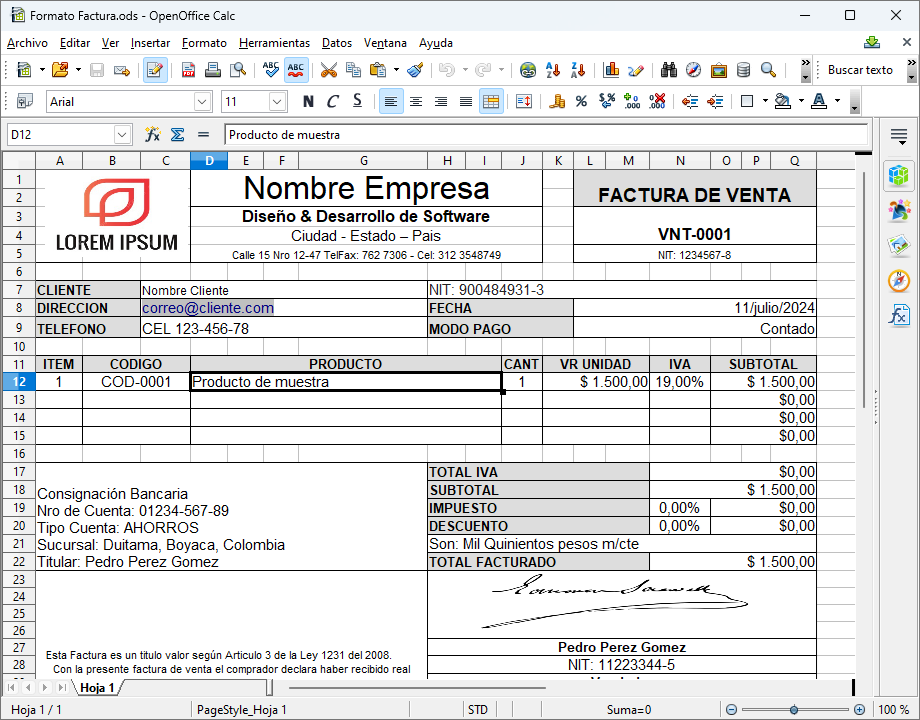What is a Tax Advisory and What Functions Does it Fulfill?
In both the business and personal environments, tax management is one of the most delicate and complex areas. Whether it's a small business, a multinational, or an individual with a freelance business, we all need to understand how to meet our tax obligations. This is where tax consulting comes into play. But what exactly is tax consulting and what is its role in the financial and accounting world? We explain it in detail below.

What is a Tax Consulting?
Tax consulting is a professional service that provides guidance to individuals and businesses in the proper management of their tax obligations. Its main objective is to help its clients comply with current tax regulations, efficiently and at the same time, optimizing tax payments.
In other words, tax consulting does not only limit itself to declaring taxes, but also seeks the best strategy to take advantage of tax incentives, avoid penalties, and help its clients make well-founded financial decisions.
What Functions Does a Tax Consulting Perform?
The functions of a tax consulting can vary depending on the client's profile and the type of service contracted. However, there are certain tasks that are common in most cases. Below, we describe some of the main functions that these consultancies perform:
Tax Planning:
Tax planning is one of the most important functions of a tax consulting. It consists of analyzing the client's financial situation to find the most efficient way to meet tax obligations, taking advantage of deductions and legal exemptions. This allows the tax burden to be reduced in a lawful and risk-free manner.
Preparation and Submission of Declarations:
A tax consulting is responsible for preparing and submitting tax returns (such as VAT, Income Tax, Corporate Tax, etc.). In this way, it ensures that all calculations are correct and are submitted on time, avoiding penalties and surcharges.
Analysis and Review of Taxes:
A good tax consulting thoroughly reviews the client's financial information to detect possible errors or inconsistencies in previous tax payments. If irregularities are identified, it can propose measures to correct them and, if necessary, process tax refunds.
Advice on Financial and Accounting Operations:
Tax consulting is not limited to taxes. It also offers advice on important financial decisions such as the purchase or sale of assets, investments, business restructuring, and other operations that may have tax implications.
Representation and Defense Before the Tax Administration:
In case of tax audits or inspections, tax consulting can represent its client before the Tax Administration, responding to requests and defending the taxpayer's interests. This function is vital to avoid legal problems and properly manage any conflict with tax authorities.
Advice on Choosing the Business Structure:
The legal form of a company (self-employed, limited company, cooperative, etc.) can have a significant impact on the tax burden. Therefore, a tax consulting can help choose the most appropriate business structure according to the characteristics and objectives of the business.
Advice on International Matters:
For companies with international operations, tax consultancies also provide guidance on compliance with obligations in different countries, double taxation treaties, tariffs, and more. This is essential to minimize risks and costs when operating at a global level.
Information and Updates on Tax Matters:
Tax laws change frequently. A tax consulting keeps its clients informed about the latest news and legislative changes that may affect them, as well as about new tax optimization opportunities.
Who Needs a Tax Consulting?
Practically anyone or entity that needs to manage their taxes can benefit from a tax consulting. Among the main users of these services are:
Companies: From SMEs to large corporations, all companies must manage their tax obligations. In addition, as the volume of operations and financial complexity increases, specialized consulting becomes more necessary.
Self-Employed Workers and Freelancers: Self-employed workers must take care of managing their own accounting and taxes, so a tax consulting can help them optimize their tax burden and avoid errors.
Individuals with High Incomes or Investments: For individuals with high incomes or who manage investments (real estate, financial, etc.), a tax consulting helps maximize the return on their capital with proper tax planning.
Why is it Important to Have a Tax Consulting?
The tax system is complex and constantly evolving. Not being aware of the latest regulations or making mistakes in declarations can lead to penalties, fines, and legal complications. Having a tax consulting not only helps you avoid problems but also allows you to focus on your business and other important areas while experts take care of your taxes.
In addition, a good tax consulting is not just about "paying less", but doing so responsibly and ethically, taking full advantage of legal opportunities to optimize the financial situation of its clients.
Tax consulting is a fundamental pillar for the proper management of taxes, whether for individuals, self-employed workers, or companies. By providing planning, advice, and representation before tax authorities, a consulting becomes a strategic partner that provides peace of mind, efficiency, and security. After all, time and peace of mind are priceless, and a professional tax consulting can help you manage your taxes correctly and efficiently, so you can focus on what really matters: the growth of your business or the stability of your personal finances.
If you are considering hiring a tax consulting or already have one and want to make the most of it, remember that a good advisor should not only be an expert in the field but also someone you can trust.






